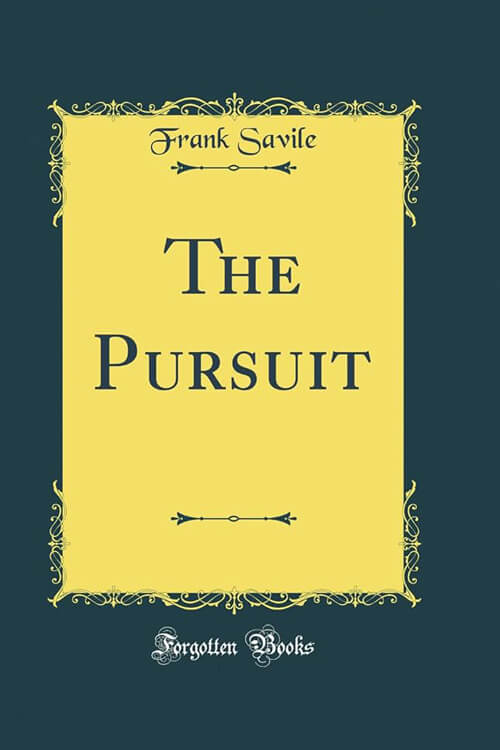
The Pursuit
It was not the muleteer’s shove, slight but significant though it was, which produced John Aylmer’s shrug of irritation. His resentment was directed at himself. He realized that he had been guilty of a gaucherie. For thirty seconds he had been standing halted in the main street of Tangier, a rock of obstruction to all the rabble traffic which passes between the Bab al Marsa and the Bab al Sôk, staring at—what?
At a pretty woman.
He reddened under his tan. The muleteer’s shoulder had displaced him for purely practical reasons, for, indeed, almost benevolent ones, for the mules would have been capable of obtaining with their teeth what their guardian had obtained by the mere weight of his body. But Aylmer felt that by accepted social standards a kick would not have been more than his due. Had he not been behaving like some cub of a cockney clerk at an Earl’s Court Exhibition? His lips moved. He was muttering excuses of himself to himself and knew that they were valid, but that an onlooker would have had no clue about them.
For it was not her prettiness that had drawn his attention to the girl. It took no second glance to assure him that she was no countrywoman of his, but an American. Her features had the clean regularity, her complexion the pale, unfurrowed smoothness that is kept intact on the western side of the Atlantic and there alone. The Moroccan sunlight was proving in a dozen places the mistake the shadows made when they dulled the gold of her hair to brown. Her eyes matched the waters of the unrippled bay.
Though he recognized these things, they had not, in the first place, attracted Aylmer’s attention. American girls—pretty American girls—are no rarity in Tangier since Mr. Cook threw over Moghreb-al-Aksa the ægis of his protection. Under ordinary circumstances he would have looked, approved, and, without altering his stride, passed on. But here was something that appealed to the inherited instincts of a gentleman. What was it?
Apprehension.
He felt no reasonable doubt on the subject. Among this girl’s natural attributes, he told himself, were placidity, contentment, and self-reliance. The first two were wanting. The third was strained. There was almost a sense of furtiveness in the glances that she turned to throw not only about but, occasionally, behind her. Frankly, she was afraid.
Read or download Book
Frank (Frank Mackenzie) Savile
Frank Hope Mackenzie Savile was born in Matlock, Derbyshire (14 December 1865), and died in Camberley, Surrey (31 July 1950).
Biography.
UK author who began his writing career under the alias Knarf Elivas (his name reversed) with John Ship, Mariner (1898), a historical nautical adventure set at the time of the Spanish Armada. His next novel, The Foray of the “Hendrik Hudson” (1898), the first under his name, is a non-fantasy involving a treasure hunt across Russia and Finland in search of a Viking hoard. This sequence of nautical tales ended in a fully-fledged fantastic adventure, Beyond the Great South Wall [for subtitles see Checklist] (1899), which combines the search for a Mayan Lost World in the Antarctic with the discovery of the extinct Native Americans’ polar deity, a brontosaurus with Hypnotic eyes. Thereafter Savile changed his literary territory for Eastern Europe – The Seekers: A Romance of the Balkans (1909) being a Ruritanian romance set in “Montenera” – or Africa.
The Desert Venture (1907), the closest Savile returned to the Lost Race theme, features a remote city south of the Sahara inhabited by descendants of the original Berber Moors. His novels are usually classified as boys’ adventures but are generally a cut above that, with verve and verisimilitude that reflected Savile’s own surprisingly active life. Though over age, he served valiantly during the First World War, where he was wounded at Gallipoli, became a Major in the newly formed Tank Battalion, and in later years became an explorer and big-game hunter in Africa.






